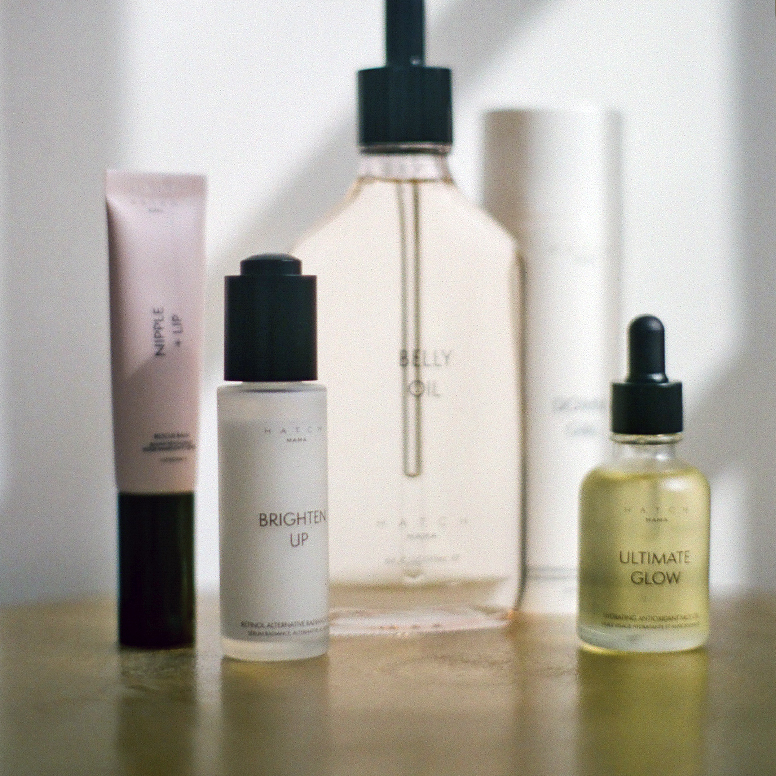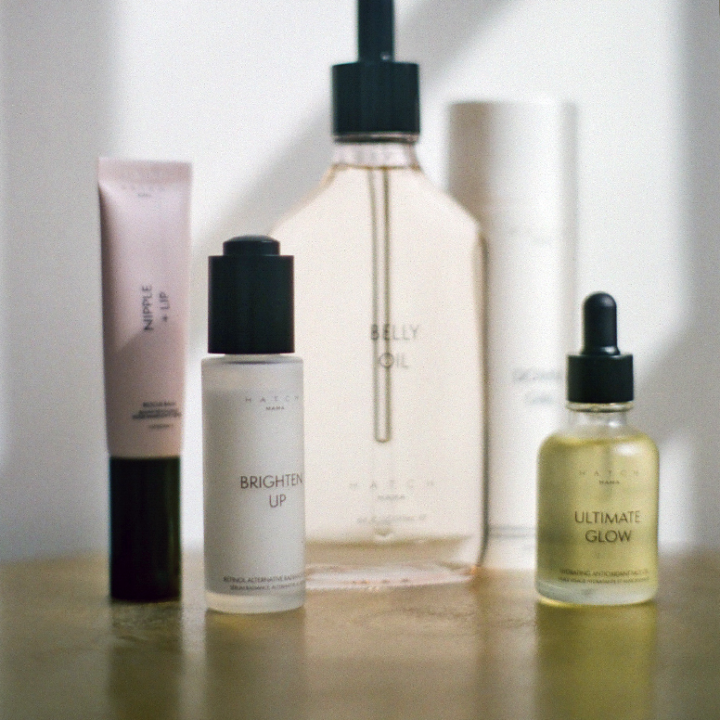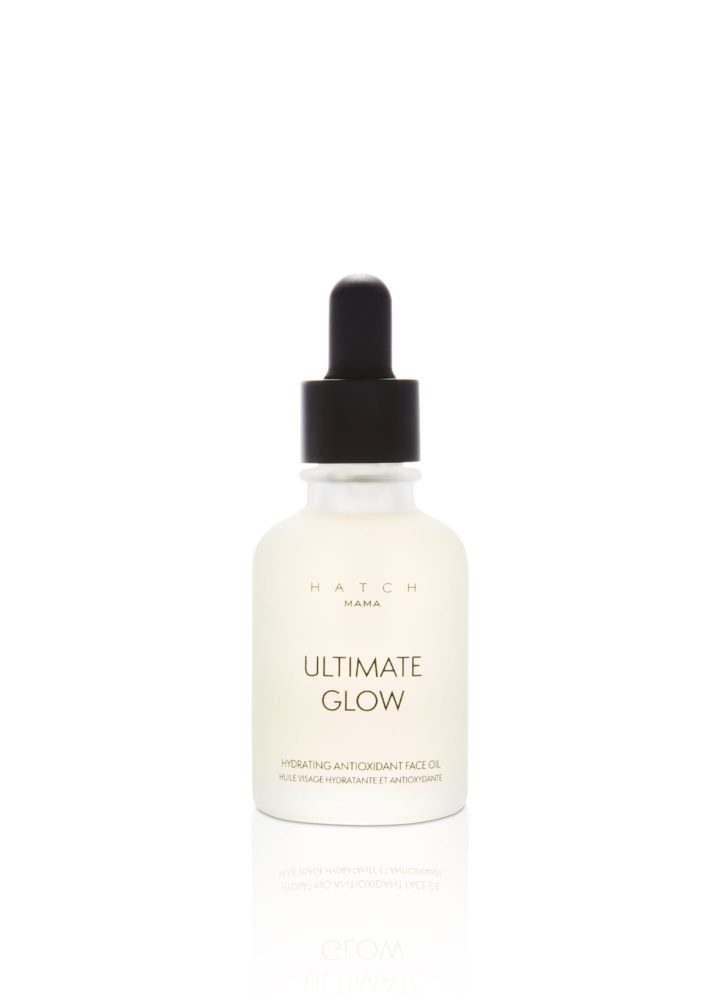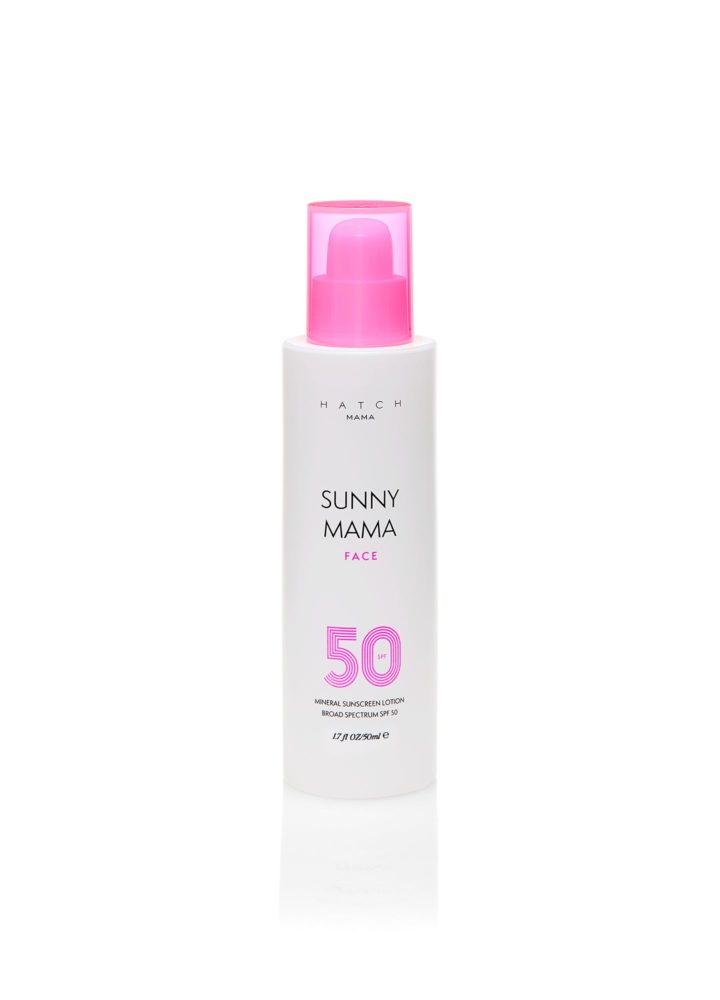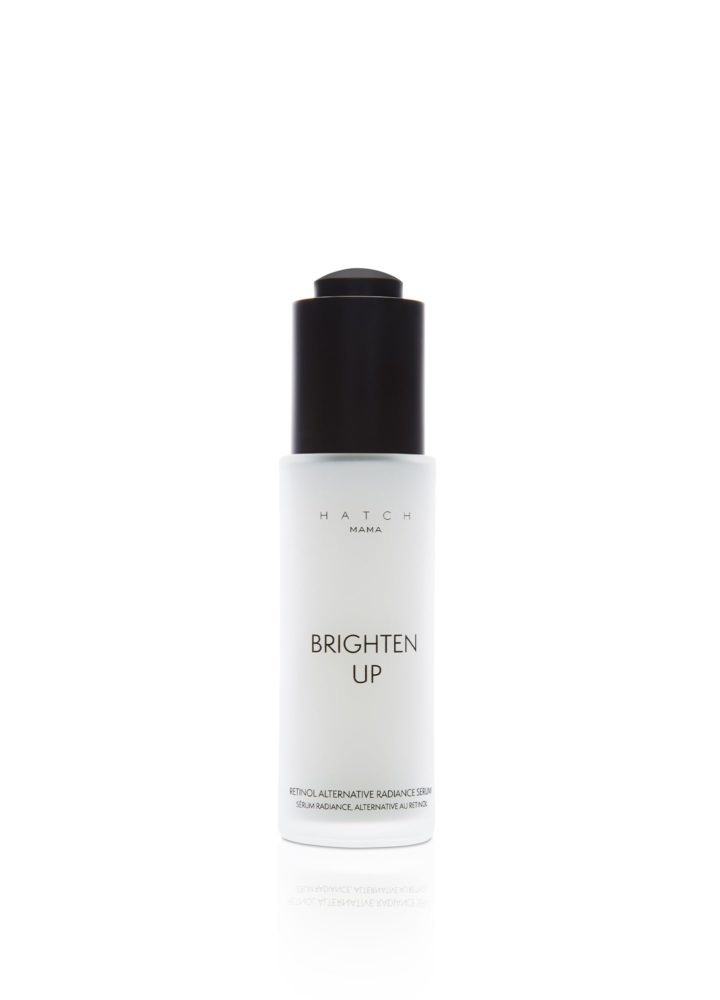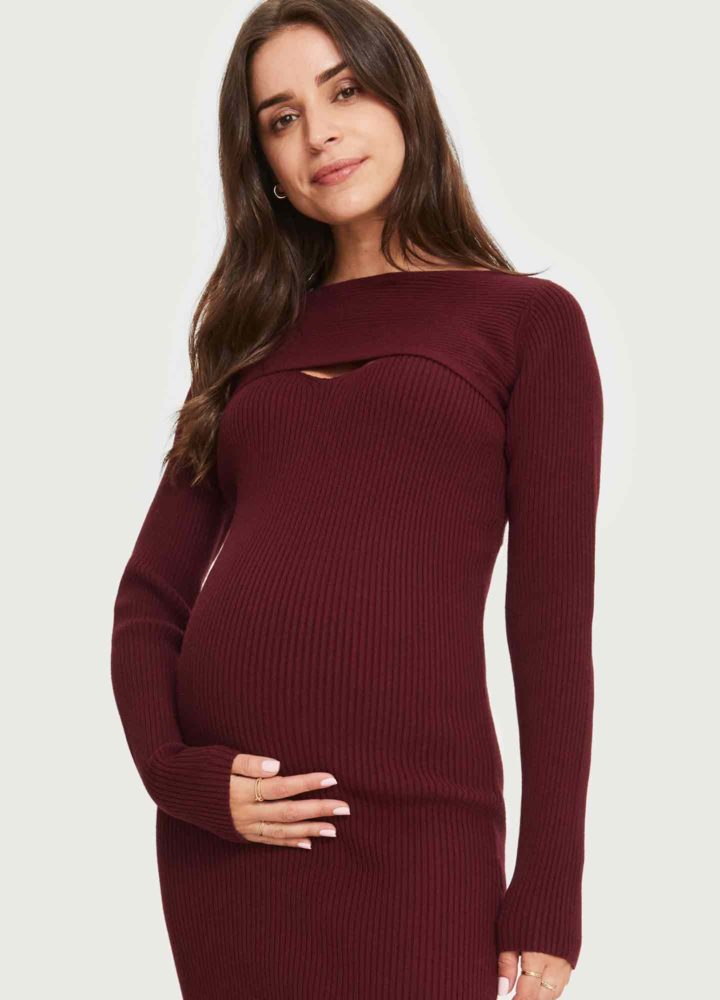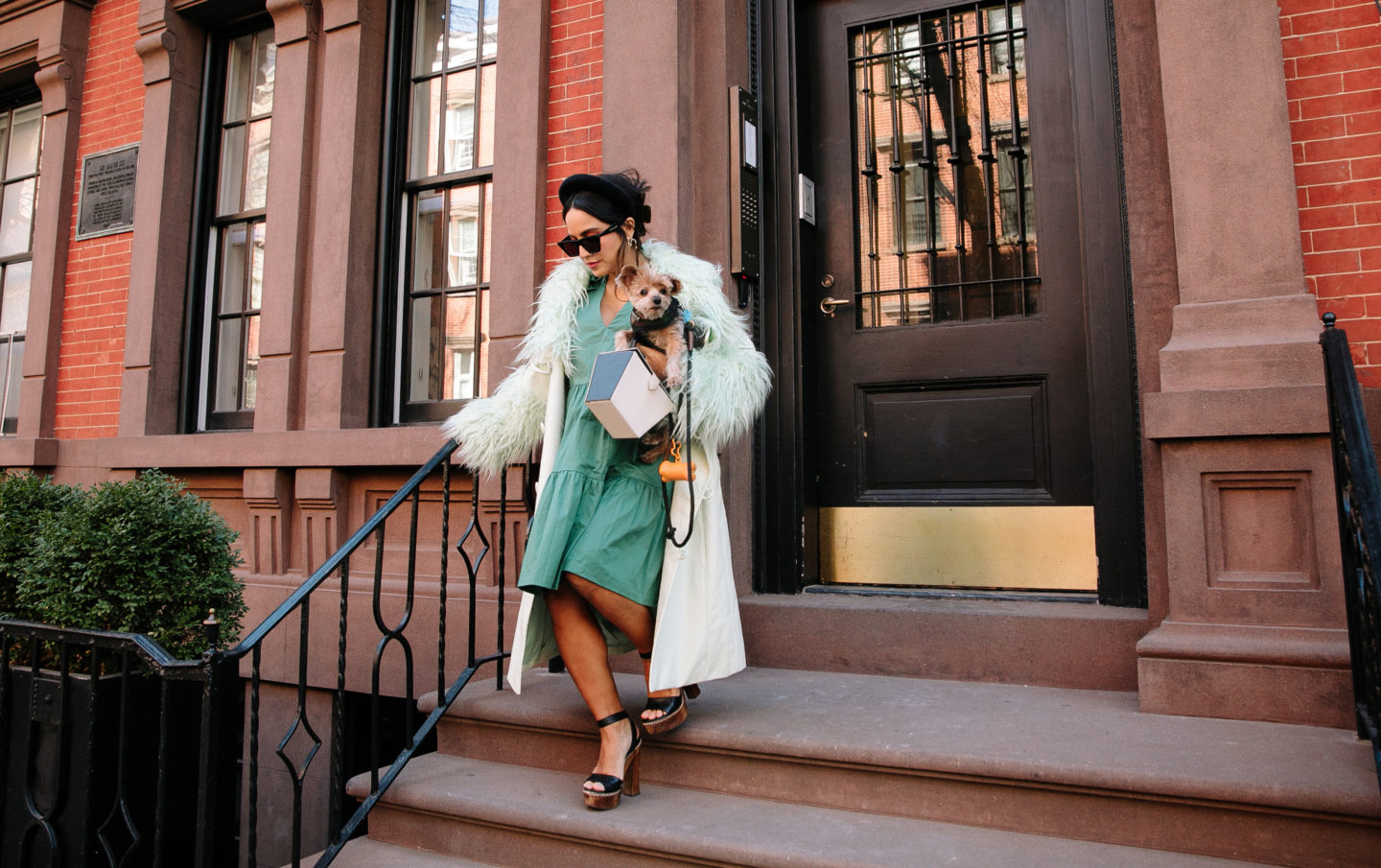Retinol: The holy grail of anti-aging skincare and a well-known acne treatment to boot. Whether retinol has been a staple in your skincare routine for years or you’re getting interested in it now, you might have a lot of questions about the vitamin A derivative, including the ever-present question on our mind these days: Is it safe to use while pregnant?
If you’re wondering about the safety of retinol or have any other questions about this skincare product, you’ve come to the right place. We’ll walk you through the basics of retinol and what you might want to add to your beauty cabinet.
What Is Retinol?
If you have any interest in skincare science, you’ve probably heard of retinol – it’s basically a miracle worker for erasing fine lines and breakouts and evening out skin pigmentation. But what is it, exactly?
According to experts at the Cleveland Clinic, retinol is a form of Vitamin A with anti-aging and blemish-clearing benefits. In other words, it’s your secret weapon for clearing up both those fine lines around your eyes and the acne that won’t go away.
Besides your cutest maternity dress, nothing will make you feel like a million bucks more than clear, glowing skin.
Retinol can be extracted and mixed into skincare products like serums, cleansers, face creams, and lotions. It can be found in both over-the-counter products or stronger prescription-strength formulations, including Tazorac and Isotretinoin.
There are a ton of different retinol products out there, both topical and oral retinoids. Tretinoin, retinyl palmitate, and even Accutane are all derivatives of Vitamin A.
Figuring out what all the retinol products are and which one is right for you isn’t quite as straightforward as shopping for maternity clothes. Some retinol products are FDA-approved, some aren’t; some require a prescription, while others don’t. It’s enough to make your head spin (or is that just pregnancy brain?).
If you’re expecting, though (or trying for a baby), there’s a simple and not-so-simple answer if
retinol is right for brightening your skin and dealing with dark spots while pregnant.
Can I Use Retinol While Pregnant?
Generally, most experts advise against retinol use during pregnancy. Their reasoning is that retinol skincare products could dramatically increase the amount of vitamin A in your body, which may cause adverse effects.
Currently, more studies are looking into how higher vitamin A levels interact with a growing baby. Talk to your OB-GYN and dermatologist to see what skincare regimen is right for you.
In the meantime, check out these pregnancy-safe skincare options:
Skincare During Pregnancy
The pregnancy glow might have an insane rep for giving you the most flawless skin of your life, but if you’ve been pregnant before, you know pregnancy glow can sometimes be more fiction than fact.
The surge of hormones you experience during pregnancy, combined with the stress and sleepless nights of preparing for the baby, can wreak havoc on your skin and make things look — well, not so glowy.
During this time, you might feel inclined to lean on your typical skincare routine more than ever, but if you (and your healthcare team) feel like a change is in order, you can still work to baby-soft skin.
There are a number of other skincare options out there for you, including glycolic acid, azelaic acid, and bakuchiol.
Let’s dive into the vast world of skincare ingredients.
Bakuchiol
Bakuchiol is a seed extract often combined in skincare products with other extracts and fruit oils, such as rosehip oil and argan oil. Like retinol, bakuchiol encourages skin cells to make collagen. Collagen production can help smooth away fine lines, chill out acne, and generally give your skin a healthy glow. It’s also an abundant source of vitamin C.
If you aren’t pregnant or expecting, bakuchiol might still be a great option for you! If you find retinol products to be harsh or drying, a bakuchiol serum could be your new fav.
We like to think of it as the secret weapon to keep in your back pocket while expecting, nursing, or just taking a break from retinol.
Looking for a bakuchiol serum to keep in your back pocket? We’ve got you:
Check out Brighten Up from HATCH. It’s perfect for pre-pregnancy, those iconic nine months, and the fourth trimester and beyond. Tested by dermatologists, this plant-based powerhouse is made with bakuchiol, tangerine peel, papaya, argan oil, and apricot oils.
After using your pregnancy-safe face wash and toner, simply pat two or three drops on your skin. Go super luxe and follow it up with the Ultimate Glow Hydrating Antioxidant Face Oil. If you’re heading out to catch some vitamin D from the sun, don’t forget your sunscreen!
Azelaic Acid
Bakuchiol isn’t the only retinol alternative; azelaic acid is another gentle (and super popular!) retinol replacement. Topical azelaic acid has been shown to be effective at treating rosacea and clearing up acne. It can be a great way to provide pregnancy-safe exfoliating action to your stressed-out skin.
Azelaic acid is an alpha-hydroxy acid (AHA) that can help clear away pregnancy masks, AKA the splotchy and dark areas on your face that develop thanks to increased melanin during pregnancy.
Nearly half of all pregnant women develop this pattern (also called melasma), while lots of other ladies get it from their birth control pills. So if this happens to you, don’t be alarmed: you’ve got lots of besties to commiserate with. Luckily, melasma typically clears up on its own after you give birth.
But if you’re sensitive about this skin condition in the meantime, there are a few things you can do. Azelaic acid can help, for one thing, and so can staying out of the sun, as well as using SPF whenever outside. (For a fab mama-safe product, check out our Sunny Mama mineral sunscreen.)
In fact, apply suncare consistently whenever you use an exfoliating product. These products make your skin more sensitive to the sun, so protect yourself and layer up the SPF every morning after applying one of these acids to your skin. Beyond that, it’s best to wear sunscreen whenever you go outside, pregnant or not, exfoliating or not.
And remember — whatever changes your body is going through right now are a sign of how hard it’s working to prepare for baby!
Glycolic Acid
Just like retinol, azelaic acid, and bakuchiol, glycolic acid helps boost collagen production and exfoliate your skin to give you a lovely glow. It’s a lot gentler than retinol and is pregnancy-safe, making it an excellent alternative for the months you keep retinol on its shelf.
Like azelaic acid and other exfoliating skin products, use sun protection while using glycolic acid. Be sure to lather up that Sunny Mama before you head out in the morning, even when it’s cloudy.
Face Oils
The last item on your mama-safe skincare shopping list should be a product containing a few hydrating face oils, especially one high in antioxidants. (Our favorite product for luminous skin is our hydration-rich Ultimate Glow Serum!)
Applying an oil to your face might sound like the opposite thing your blemish-prone skin needs, but facial oils can actually be super helpful for hydrating and maintaining your skin’s moisture barrier. Oiling up right after exfoliation can help lock in all the benefits of that exfoliant and allow you to wake up feeling flawless every morning.
Body Image During Pregnancy
Let’s be real for a second: During pregnancy, your body changes a ton, and it’s super normal to feel a little, well, not so great about how you look, including the skin on your face. Whether you’re dealing with hormonal pimple flare-ups or dryness and hyperpigmentation from weather changes, it’s par for the course to feel not so hot about how you look while expecting.
But we want to remind you that during pregnancy, your body is working extra hard to support you and your growing little one! Any changes that happen during this time are simply a sign that your body is doing what it needs to do to get ready for delivery, and it’s important to remember that and try to accept the way your skin (and the rest of your body) looks during this time.
Skincare routine aside, the only thing that matters right now is that you’re nurturing your body and mind. Pick out a skincare routine that cares for you and get back to the glow you know.
Sources:
